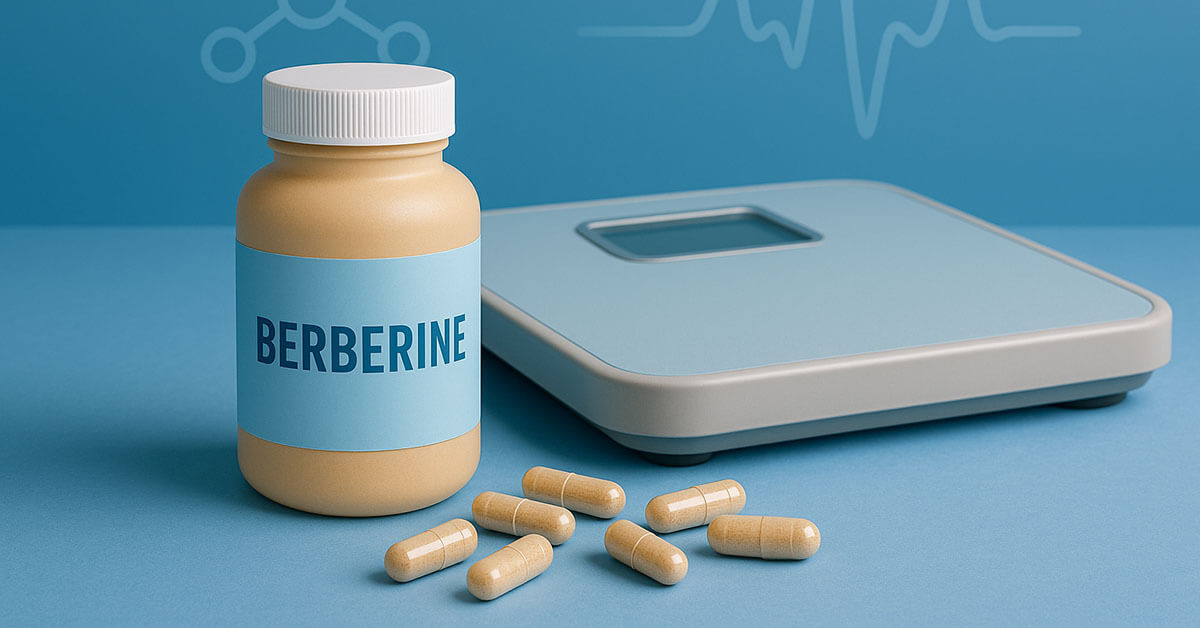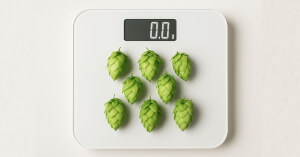
Berberine for Weight Loss: Is It Really an Alternative to Ozempic?

If you’ve spent any time on social media lately, you’ve probably heard of berberine being called the "natural Ozempic."
With GLP-1 medications like Ozempic and Wegovy exploding in popularity for weight loss, people are searching for safer, natural alternatives. That’s where berberine comes in.
But does it really work for fat loss? Or is it just another internet trend?
In this guide, we’ll break down what the science says about berberine for weight loss, how it compares to Ozempic, and how to use it safely.
Why Berberine Is Trending for Weight Loss in 2025
Berberine is everywhere right now. From TikTok to Reddit, health enthusiasts are calling it the "natural GLP-1 alternative."
Why? Because it’s a supplement that may help:
- Reduce belly fat
- Control blood sugar levels
- Support metabolic health without harsh stimulants
For people who can’t afford expensive medications, like Ozempic, or prefer a natural approach, berberine is becoming a go-to option.
What Is Berberine?
Berberine is a plant alkaloid found in herbs like Berberis vulgaris, goldenseal, and Oregon grape root.
It’s been used in traditional Chinese and Ayurvedic medicine for centuries, mainly for digestive issues and infections. But modern science is uncovering new benefits, especially for metabolic health and weight management.
How Berberine Works for Weight Loss
Berberine isn’t a stimulant or an appetite suppressant. Instead, it works at a cellular level to support fat loss in several ways:
1. Activates AMPK
Berberine activates AMPK, often called the "metabolic master switch." This enzyme helps regulate energy balance and promotes:
- Increased fat burning
- Reduced fat storage
- Improved insulin sensitivity
2. Stabilizes Blood Sugar
By controlling blood sugar spikes, berberine may help reduce cravings and prevent fat gain from insulin surges.
3. Supports a Healthy Gut Microbiome
Berberine can positively affect the gut by promoting good bacteria and reducing inflammation. Since gut health is linked to weight management, this is a big plus.
Berberine vs Ozempic: What’s the Difference?
People love to compare berberine to Ozempic but they’re very different tools. Here’s a quick comparison:
| Berberine | Ozempic (Semaglutide) |
|---|---|
| Natural plant supplement | Prescription injectable medication |
| Activates AMPK to support fat metabolism | Activates GLP-1 receptors to reduce appetite |
| Helps with blood sugar control and gut health | Strong appetite suppressant, may cause nausea |
| Weight loss: 3 to 5 kg over several months | Weight loss: 10 to 15% of body weight in clinical trials |
| Affordable, over-the-counter | Expensive, requires prescription |
Bottom line: Berberine won’t match Ozempic’s appetite suppression, but it offers a natural, safer way to support metabolism and fat loss.
What Does the Science Say?
Several studies back up berberine’s weight loss potential:
- One clinical trial showed an average weight loss of 5 pounds (2.3 kg) over 12 weeks in obese participants taking 500 mg of berberine three times per day.
- Another study found a significant reduction in belly fat and waist circumference.
- In people with metabolic syndrome, berberine improved insulin sensitivity, lipid profiles, and body composition.
While the weight loss is modest compared to pharmaceutical options, berberine’s overall health benefits make it a powerful tool.
Berberine Benefits Beyond Weight Loss
Berberine does more than burn fat. It also:
- Supports healthy blood sugar levels
- Lowers LDL cholesterol and triglycerides
- Improves gut health
- Has anti-inflammatory effects
- May help reduce the risk of heart disease and diabetes
Think of it as a metabolic health supplement, not just a fat burner.
How to Take Berberine for Weight Loss
Berberine has a short half-life, so it’s best to split the dose across the day.
- Recommended dose: 500 mg, 2 to 3 times per day (with meals)
- Timing: Breakfast, lunch, and dinner
Best Practices
- Start with one dose per day for the first week to assess tolerance
- Increase gradually to avoid digestive discomfort
- Take with food to minimize side effects
Stack Ideas
- Glucomannan for appetite control
- Probiotics for gut synergy
- Cinnamon or chromium for additional blood sugar support
Possible Side Effects and Warnings
Berberine is generally safe, but you should know about a few precautions:
- Digestive issues: Some people experience constipation, bloating, or nausea
- Blood sugar drop: Be cautious if you’re on diabetes medication
- Drug interactions: May interact with metformin, statins, or anticoagulants
- Pregnancy & breastfeeding: Not recommended
Always talk to your doctor if you have existing medical conditions or take prescription drugs.
The Bottom Line: Can Berberine Replace Ozempic?
Berberine is not a direct replacement for Ozempic. It won’t suppress appetite like a GLP-1 drug, and it won’t cause dramatic weight loss on its own.
But if you’re looking for a natural, science-backed way to support fat loss, blood sugar control, and metabolic health, berberine is one of the most promising options available in 2025.
Combine it with a healthy diet, regular exercise, and good sleep for the best results.
👉 Discover more Weight Loss Supplements
This article was originally published on Stackbb, your trusted source for science-based supplement guides.











